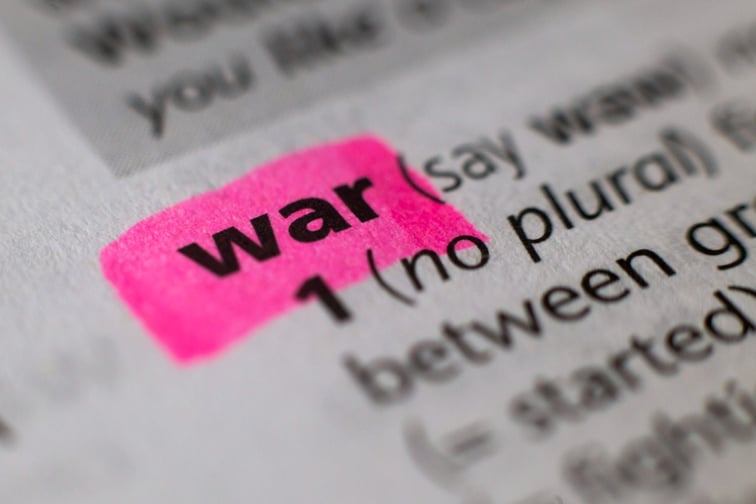

As Russia’s war on Ukraine grinds on, one of the insurance industry impacts is overwhelmingly positive. This uncomfortable reality was explained to Insurance Business by Adel Dawood (pictured immediately below), managing director of North Sydney based Asia Mideast Insurance and Reinsurance (AMIR).
“When there is really significant exposure, war coverage comes at very, very high rates,” said Dawood. “That's why the war market is historically very profitable.”
He said, especially for international shipping, war insurance is a very popular product.

“If they are not in a war zone the price is very cheap and they can easily afford to buy it,” said Dawood. “Of course, if they are in a war zone, then the price is very expensive but they cannot really risk doing business without having the cover.”
IB suggested that, in some ways, war risks coverage could be the perfect insurance product?
“Yes, war has always been very profitable,” agreed Dawood. “There was a leading marine war risk underwriter in the London market in the 1970s when I started my career and his nickname was Goldfingers because of the amount of profit he was making.”
AMIR is an underwriting agency specialising in the offshore energy sector including upstream oil and gas contractors. The firm’s coverage offerings include marine hull and machinery, P&I (protection and indemnity) and war risks.
Dawood said war risks are a very important part of the marine and aviation markets.
“Any ship or aircraft, as long as it is moving and not stationary, can get war cover,” he said. “Because of the current war with Russia and Ukraine, I can tell you that all the underwriters and all the marine brokers [who write war risks] have been very busy amending [war] covers and cancelling and rewriting these covers.”
Dawood said the advantage of the war clauses in these types of policies is that insurers can cancel the cover when they expect a conflict and then offer the same coverage at higher rates.
Insurers in London offering war coverages may have become a little too greedy during the 1980s.
Dawood, who is originally from Egypt, said when the Iran-Iraq War started the London market was charging very high rates, even for businesses located in surrounding countries that were relatively unexposed to the conflict.
As a result, he said, insurers in Iraq suggested that other Arab countries start their own war risks syndicate. This Arab syndicate is based in Bahrain and Dawood said, to this day, it is very profitable.
“Political rivalries and conflicts are increasingly being played out on the high seas, increasing risks for ship owners and seafarers,” says the article, published in 2019.
The article, War (insurance) - What is it good for?, explains that, for marine vessels, war coverage is kept separate to the marine hull insurance policy.
“However, such hull policies do not cover acts of war, piracy or the seizure of vessels,” says the article. “These risks require a standalone war coverage policy to be purchased, which AGCS also offers, although it is not a major provider of this type of insurance.”
Other insurers are.
Liberty Speciality Markets has a War and Terrorism division that operates out of many of its global offices. According to the firm’s website these policies have a capacity of US$250 million and come with a 24/7 crisis response service. Coverage areas listed include war on land, terrorism, revolution and nuclear warfare.
AXA XL, another global insurer, also offers what it calls war, terrorism and political violence insurance. On its website the firm says clients that may need this insurance range from small to multinational companies including power and utility firms, energy companies and also banks and construction firms.
Much like Liberty, AXA covers war and terrorism, including chemical, biological, radiological and nuclear attacks.
Dawood’s underwriting agency recently announced a new marine hull facility for marine hull builders risks including all types of vessels and also for offshore support vessels. The media release described AMIR’s capacity providers as a “one stop shop for Hull & Machinery, War and P&I risks.”
Give War a Chance, the inspiration for the title of this story, is a book by American journalist and satirist P J O'Rourke, published in 1992. The full title of the work is: Eyewitness Accounts of Mankind's Struggle Against Tyranny, Injustice and Alcohol-Free Beer.
What are your thoughts on war insurance? Please comment below.
